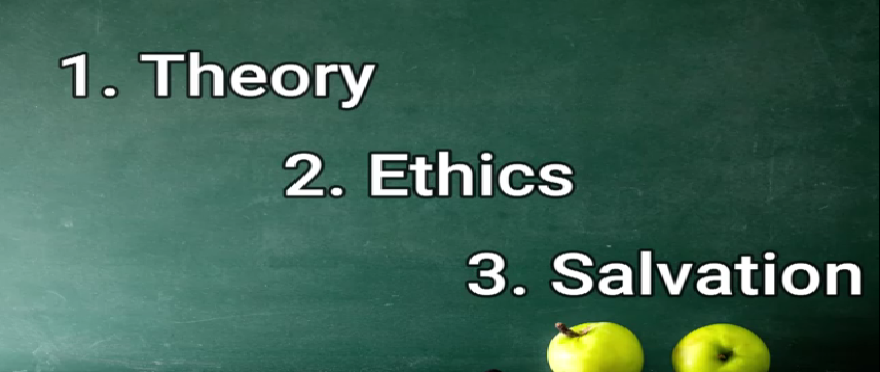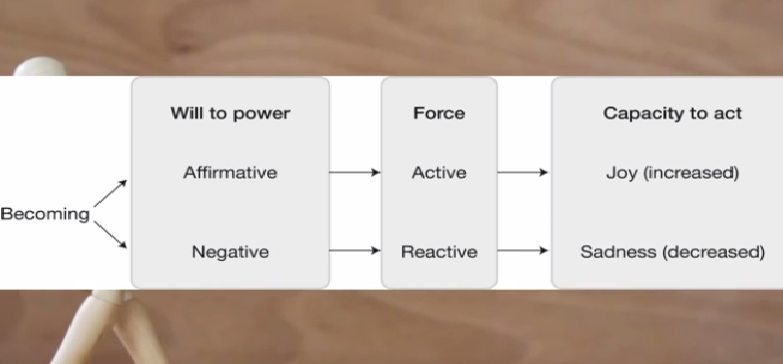2500 years ago, Athens was a well-known city in ancient Greece where a sloven person stopped people on the way to ask them strange and psychedelic questions. He used to ask people what truth is? What is morality? He not only used to ask questions but also used to incite people to ask questions. He thought people die after living a purposeless and meaningless life besides one-sided thinking. Do you know who this person was? This person was such a brilliant mind who laid down the foundation of philosophy in the West. This person was called Socrates.
What a heart-shattering event that happened with Socrates! You will find it later in this post. You should have heard about the names of some great philosophers like Plato, Aristotle, Nietzsche, Heidegger, and Marcus Aurelius, and the list is endless. But when we talk about their philosophies, people become afraid as they think it is difficult to understand them. People can't understand such deep and abstract conversations. Thus, people lose their courage, but you don't need to be afraid. Today, we will take you on a journey of knowledge, wisdom, and intellect that will blow your mind. There is so much learning in the post that you will enjoy. Today, we are going to meet the greatest philosophers in history. It will be a joy ride.
What is Philosophy?
Unfortunately, there is no universal definition of philosophy. Therefore, we will have to understand the concept of philosophy indirectly. Human is a finite entity in the language of philosophy. It means he is imprisoned in space and time. It is a fact and humans know that one day they will die and their life will be finished. This thought of death compels humans to think about how this short period of life must be spent. This thought of death also creates fear in humans. He fears he will lose his dear ones. He also fears what will happen in the future. All these fears stop us from living a happy life. Therefore, to avoid this fear, humans have always sought the support of two things i.e. religion and philosophy but the modus operandi of both things is entirely different. Religion especially Christianity and Islam prevent humans from the fear of death with the power of faith. Both these great religions teach us if we have faith in God, He will get us together again with our dear ones forever in Paradise. Philosophy tries to save us with the help of logic and reason and it compels us to raise questions so that we can find answers to the questions of life that make us worry and can reduce our anxiety.
Philosophy has basically three stages:-
1. Theory: With the help of theory we try to know what is the real nature of the truth.2. Ethics: With ethics, we can know how to live life in a society.
3. Wisdom or Salvation: Wisdom or salvation helps us to give meaning or a purpose to life.
It has been divided into five stages in the history of Western thought. It started with the ancient Greek philosophy and the first philosophy that utilized these three stages for the first time is Stoicism. It is one of the most effective ancient Greek philosophies adopted by Zeno of Citium in the 3rd century BC. According to the Stoics, this universe was like an animal and its every part was like an organ that helped the universe in its movement. The consequence of this was the perfect natural order. A system in which every piece was compatible with each other to create the perfect balance which Stoic named Cosmos. It is example is our body and the environment in which we live. According to him, the design of our body and environment is so perfect that we can get anything with it. With the help of our eyes, we can see the world, with feet we can walk and with our intelligence, we can make it easy to solve our biggest problems. Since the natural order of this universe is perfect, therefore the ultimate goal of any human being is to find its place in the natural order.
The second largest stage in Western Philosophy was Christianity. Though Christianity is not a philosophy, it took the place of ancient Greek Philosophy. But how did Christianity challenge Greek Philosophy? To understand this, we will use the three stages of philosophy i.e. theory, ethics, and salvation.
For the first time, Christian theory changed the concept of reason and logic (Logos). People believed that reason and logic were hidden inside the universe but Christianity rejected it and declared Juesis Crest as Logos. This was a big change. Suddenly people started believing that structure like the universe is meaningless and that the whole wisdom and logic is owned by a single person. The people said not to raise this question. Never talk about wisdom, just use the power of faith. Faith is everything. On one side, Christianity rejected the natural hierarchy concept of the Greeks. According to the Greeks, nature gifts us unequally in the shape of beauty, strength, height, intelligence, wisdom, etc. The Greeks believed that the unequal distribution was a gift from God which was proof that some people are born to lead and others to follow. But Christianity declared this inequality insignificant and useless. Every person has the freedom to better his life. The concept of freedom in Western Ethics was a very innovative idea at that time. The internal spiritual world of human beings is more important than the physical world was the second innovative idea of Christianity. This is the reason why people became happy to be martyred in the initial years of Christianity. People prayed for their martyrdom because the relationship of humans with God was more important. The third innovative idea of Christianity was humanity. It means to place humans at the top. To place humans in the center of the universe. According to the Christian Faith, all are equal in front of God. Therefore, the human race is equal. The Christian Salvation Doctrine was also innovative at that time. Christianity promised its followers when they would die, they would be resurrected to live eternal life. It will last till eternity. They will get again its individual personalities in this eternal life and will live with dear ones again. But the old concepts of human reality were shattered by humans with the emergence of Science in the 16th century that told the Christian Church that not Earth but the Sun is the center of the universe. This was the era when Galileo was born, and Isaac Newton was born. The people realized that the whole universe works according to the laws of physics.
Humanism
Humans came to know that the universe was infinite at the time. Therefore, humans realized that they needed a new thought, a new philosophy, and a new ethical order. So that they could search for their identity and position in this vast universe and could get their salvation. This was the start of 3rd stage of Western Thought which is called Humanism.
The story of humanism starts with the French Philosopher Rene Descartes. You might have listened to the famous saying of Descartes, "I think, therefore, I am" as my thought assures me of the being of me. My thought is the identity of my existence. Descartes had a critical spirit in him with the help of which he rejected all the old beliefs and began a fresh inquiry about reality. In the same era, another great philosopher Jean-Jacques Rousseau called the founder of modern humanism declared humans as the center of the universe and began an inquiry into humans. He said, "We can understand the universe if we understand ourselves". Rousseau said, "Human is entirely different from animal and the thing that separates human from an animal is perfectibility". He said, "Animals are preprogrammed and their behavior is predictable. Cat never eats grass and giraffes never eat meat but on the other hand, humans have full independence to make themselves better. We can eat anything. We can become scientists, astronauts, architects, or artists. We can do absolutely anything". However, humanism also needs salvation. To get this salvation, some people took the support of earthly religions. These were such religions in which humanity has importance instead of God like Communism, Scientism, and Patriotism. Rousseau had a unique and new concept about human freedom, and it raised a very important question. How will ethical guidelines and freedom go hand in hand? A great German Philosopher Immanuel Kant answered this question. He presented a theory of ethics that became the basis of modern humanism. According to Kant, a behavior is unethical if it is driven by any selfish motive. Actually, Kant says that we should not do it because of sympathy or pity. There shouldn't be any selfish motive behind it. According to him, our actions are moral when we approve of the universal maxims they embody. Let me explain. On many occasions, we rely on lies, and that lie goes in our favor. For example, you don't want to go office and you tell your boss that you are not feeling well. Now how you will judge this act. According to Kant, if the whole world starts behaving like that. Will it be ethical? According to Kant, our deeds should be based on the universal common good. It means good for the whole of humanity, not for a family or nation. Kant named it the Categorical Imperative which means unquestionable commandments and it is obligatory to follow. All these ideas made the foundations of humanism stronger but Kant didn't know that there was a great and earth-shattering philosopher Fedrick Nietzsche who would destroy all these foundations. His life was very difficult and often remained ill but his thoughts and philosophy were Nihilism. Nihilism is a philosophy according to which the whole world and this life are meaningless. It has no purpose. Nietzsche was against Christianity, Humanism, and Socialism. According to him, all these doctrines stop the flight of human thoughts. According to him, the meaning of life is life itself.
Nietzsche believes this world is the combination of two forces i.e. active and active and these forces always remain in conflict with each other. Reactive is the negative force while active is the positive force. According to Nietzsche, we should balance these two forces which he named "will to power". Nietzsche challenged the old philosophy and gave a new angle of thought. Therefore, he is called the founder of Post Modernism Thinking which is the fourth stage of Western thought. But a time came when the ideas of this great philosopher were challenged from where started the fifth stage of Western Thought called Contemporary Philosophy. This philosophy rejects the earthly religions but it also rejects Nietzsche's idea that only the real world of experience exists. According to Contemporary Philosophy, something is beyond reality which be can assumed only but can't be understood completely.
The Western World slowly evolved its thoughts and made humans think, which enabled it to advance in the global race. The main thing is thought. Remember, thought is the biggest weapon.
Socrates incited the youth of Athens to think. Therefore, the elders of Athens thought that Socrates was corrupting their youth discarding the old thoughts and giving a new angle of thoughts to their youth instead. They decided that Socrates was not acceptable. Therefore, he was given two options i.e. he should leave Athens and go into exile or he should drink poison. Socrates told them that he was doing nothing wrong. Therefore, he rejected the notion of exile. He said that he would drink the cup of poison but would never change his thoughts. Athenians thought that they had buried his thoughts with him, but even after 2500 thousand years, we still remember him and the whole world studies his thoughts. This is called the power of thought. Therefore, we should develop a modern progressive thought. We should advance with time. we should ask questions to clear our doubts. Remember, doubt is the first step of wisdom.





